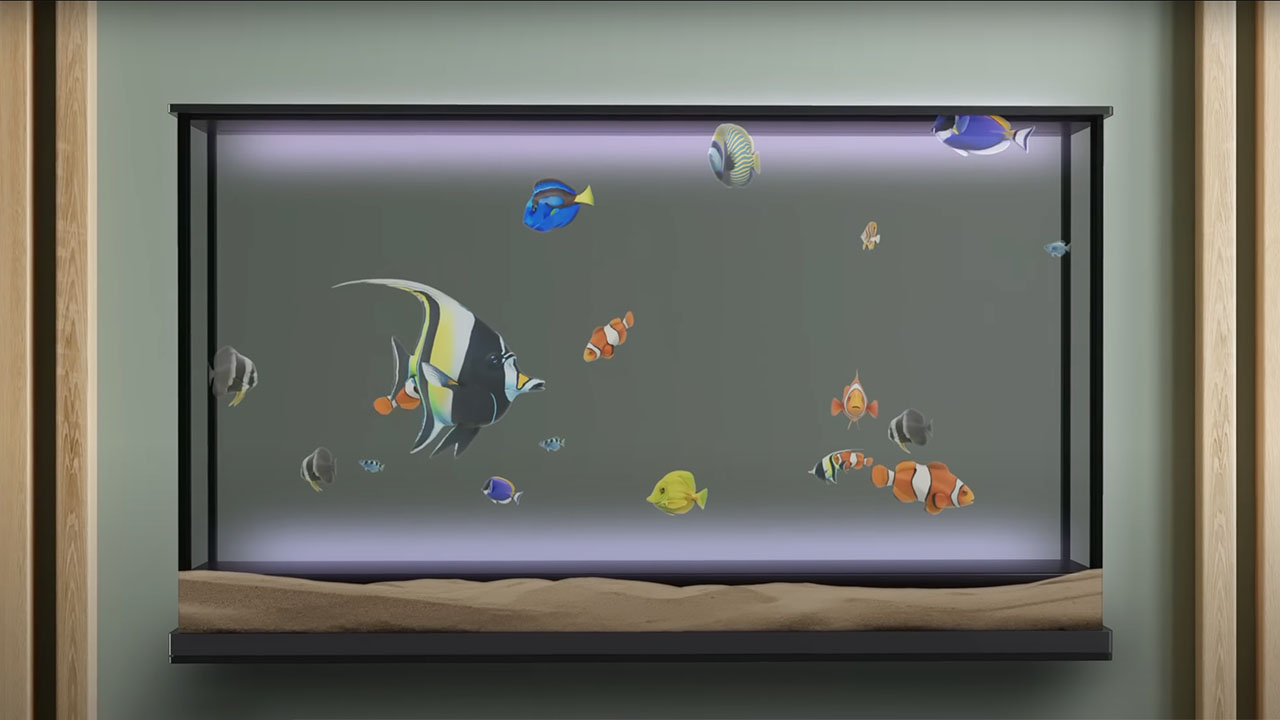
Transparent TVs look like the stuff of science fiction, and it's looking like they will be becoming much more prevalent. But why do we need them?
A good few years back now, I wrote an article about technology in science fiction that I deemed completely impractical in the real world. One of those technologies was transparent LCD screens. After all, why on earth would you want to watch television where you could see everything behind the display as well?
However, transparent televisions are now a reality, but they are far more practical than their science fiction counterparts. LG, Samsung and Xiaomi have all shown off transparent television models, and the technology isn't new, first being demonstrated in commercial displays back in 2015. Xiaomi's first transparent television went on sale in China in 2020, for a price.
But now, companies like LG and Samsung are beginning to push the technology to be much more mainstream, and more impressive. Although currently only LG has firm plans for a commercially released product. Earlier this year, LG showed off the world's first wireless transparent TV, which highlighted an important step forward. You see, having a transparent display is one thing, but you don't really want to see a load of wires coming out of the back of it. LG's television can be completely standalone in a room with no birds nest of wires, because it uses a proprietary wireless transmission system.
Clean living
By removing the wires from the display, the transparent display technology can be utilised to the maximum. Although such a display does create its own problems, which I'll come to in a moment. For now, let me talk about why a transparent display is a useful thing to have.
To begin with, when you turn a transparent display off, it is totally transparent. There are no ugly bezels, so it is barely noticeable in a room. If it could be hung on a wall, it would be almost seamless. Or it could be made to display artwork.
A large transparent display in the middle of a room could offer less distracting interactions over, say, a webcam conversation. With background isolation meaning that whoever you are talking to could appear as if they are in the room with you. Okay, so it's not a 3D holographic effect, but it would be the closest to that experience that it's possible to get with current technology. Or, you could use it as a giant digital fish tank, as LG has demonstrated.
Transparent TV is still impractical
So far, so cool. There are still drawbacks to the technology, and one of them is the exact same one I highlighted earlier. Despite how novel the technology looks, a transparent TV isn't capable of showing pure black. The image will always be slightly see-through, so you won't really be wanting to watch your favourite TV shows on one.
LG's solution to this is to provide a black screen than can be rolled up behind it to provide the contrast needed for 'normal' viewing. But, it's a bit of a fudge and takes away from the idea of seamless, clean science fiction styling.
The other problem is that most of us don't own the kind of super-clean, stylish rooms seen in LG's demonstrations. Seeing a wall with plug sockets, or a plain white wall covered in cobwebs because you've been a bit slack with the dusting doesn't quite have the same feel as the promo materials. Furthermore, despite the wireless transmission system, that doesn't help if you only have one place to situate the television, and you've got a load of gaming consoles and a Blu-ray player underneath it. Achieving the minimalist clean look in a room is all but impossible for many of us.
So, transparent televisions are now a reality, but I still don't want one, even if it means I can own a zero maintenance 'fish tank' or I can see your digital head floating in space. Transparent displays will have their uses in the commercial sector, but for the rest of us, they should probably stay in science fiction movies.
Tags: Technology television


Comments